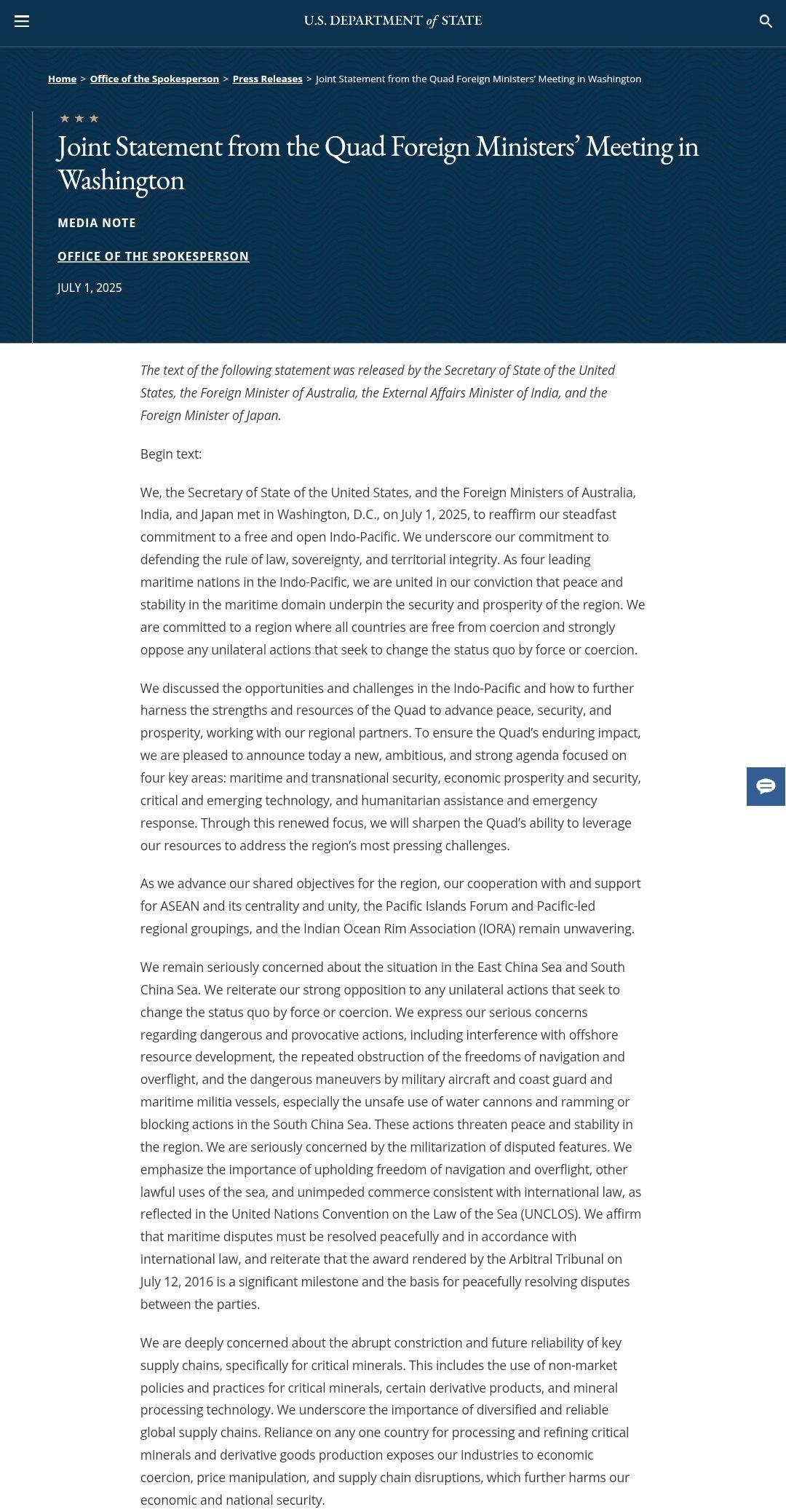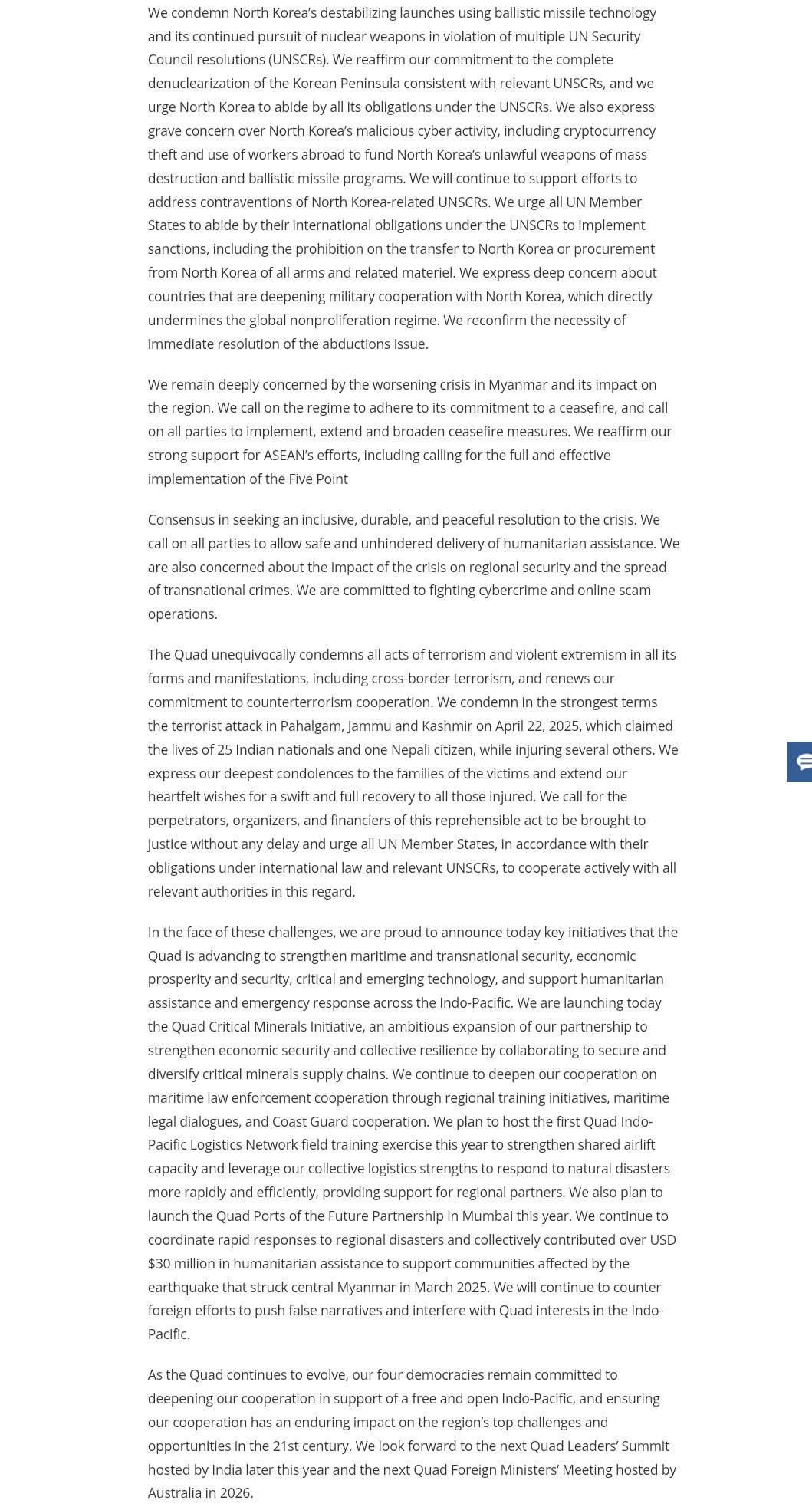The brutal terrorist attack on tourists in Jammu and Kashmir’s Pahalgam continues to reverberate across global diplomatic corridors, with the foreign ministers of the Quad groupin, India, the United States, Japan and Australia, on Tuesday, condemning the carnage and calling for the perpetrators to be brought to justice without delay.
Meeting at the US Department of State, the Quad foreign ministers issued a strongly worded joint statement, denouncing the 22 April assault that claimed 28 lives, 27 Indian nationals and one Nepali citizen, and left several others injured. The ministers expressed “deepest condolences” to the families of the victims and affirmed the grouping’s united stand against terrorism.
“The Quad unequivocally condemns all acts of terrorism and violent extremism in all its forms and manifestations, including cross-border terrorism, and renews our commitment to counter-terrorism cooperation,” the statement read.
“We condemn in the strongest terms the terrorist attack in Pahalgam, Jammu and Kashmir… We call for the perpetrators, organisers, and financiers of this reprehensible act to be brought to justice without any delay and urge all UN member States… to cooperate actively with all relevant authorities in this regard,” it added.


Also read: Pahalgam attack was an act of economic terrorism: EAM
External Affairs Minister S. Jaishankar, US Secretary of State Marco Rubio, Japan’s Foreign Minister Takeshi Iwaya, and Australia’s Penny Wong took part in the meeting. The gathering also served as a preparatory round for the upcoming Quad Leaders’ Summit in New Delhi later this year.
During his remarks, Jaishankar underlined India’s long-standing position that no distinction must ever be drawn between victims and perpetrators of terrorism. “The world must display zero tolerance against terrorism,” he said.
Without directly naming the Indian military’s retaliatory Operation Sindoor, Jaishankar made clear that New Delhi reserved the right to respond decisively.
“India has every right to defend its people against terrorism, and it will exercise that right,” he added.
The foreign ministers reviewed ongoing initiatives in the Indo-Pacific and reaffirmed their commitment to ensuring stability, development and respect for sovereignty in the region. A strong emphasis was laid on defending the rules-based international order and ensuring “freedom of choice” for Indo-Pacific nations in matters of development and security.
Jaishankar, who is on a visit to the United States from 30 June to 2 July at Secretary Rubio’s invitation, also met with US Defence Secretary Pete Hegseth. The two leaders held talks on expanding India-US defence cooperation amid rising geopolitical tensions in Asia.
The Pahalgam attack, among the deadliest in the Valley in recent years, was carried out by militants linked to the Lashkar-e-Taiba. The Resistance Front (TRF), a Lashkar offshoot, initially claimed responsibility but later retracted the claim following sharp international condemnation.
India responded on 7 May with Operation Sindoor, which targeted nine terror camps in Pakistan and Pakistan-occupied Kashmir. The pre-dawn strikes killed at least 100 militants, according to official estimates, and led to four days of intense cross-border exchanges involving air, ground and missile assets.
Despite Pakistan’s denials and diplomatic manoeuvring, New Delhi has maintained that the action was necessary to prevent further attacks and eliminate active terror infrastructure across the border.




